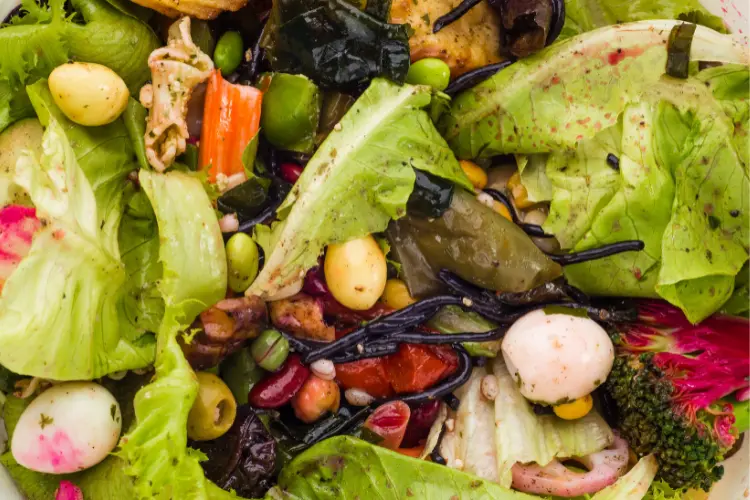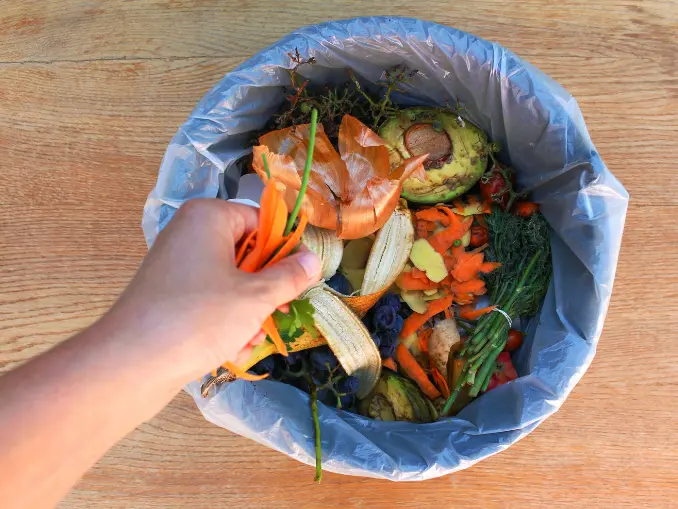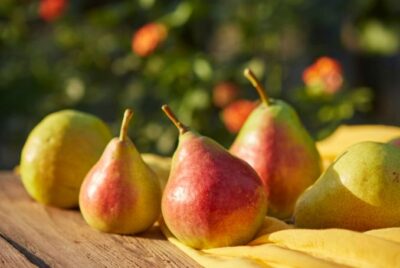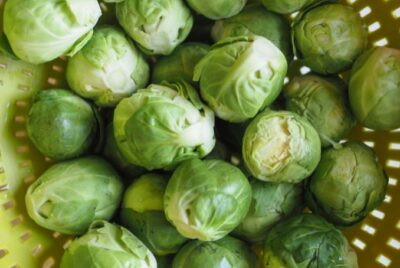Creative Ways to Repurpose Kitchen Scraps for Chickens
Do you find yourself constantly throwing away kitchen scraps, wondering if there’s a more sustainable way to deal with them? As a chicken owner, you might miss out on a fantastic opportunity to reduce waste and provide extra nutrition for your feathered friends.
In this guide, we’ll explore the frustration of wasted kitchen scraps and reveal how you can turn this inconvenience into a win-win solution for both your household and your chickens.
Benefits of Repurposing Kitchen Scraps for Chickens
- Feeding chickens kitchen scraps can help reduce the cost of their commercial feed. It’s a cost-effective way to supplement their diet, especially if you have a large flock.
- Instead of throwing kitchen scraps into the trash, you can divert them to your chickens, reducing food waste in your household.
- Kitchen scraps provide additional nutrients and variety to your chickens’ diet.
- By repurposing kitchen scraps for chickens, you’re contributing to a more sustainable lifestyle by minimizing the amount of food waste that ends up in landfills.
- Some kitchen scraps, such as greens and certain fruits, can improve the quality of eggs your chickens produce. These scraps can enhance the color and taste of the yolks.
- Chickens enjoy pecking and scratching at food scraps, which can give them mental stimulation and entertainment.
- Chickens can help break down and consume kitchen scraps, which can then be incorporated into your compost pile as chicken manure, enriching the compost with valuable nutrients.
Basic Nutritional Requirements for Chickens

Chickens have specific nutritional requirements to maintain their health and productivity. Meeting these requirements is essential for raising healthy chickens and getting good egg production. Here are the basic nutritional requirements for chickens:
Protein
Chickens need protein for growth, feather development, and egg production. The protein requirement of chickens varies depending on the life stage:
- Chicks (0-8 weeks): 18-20% protein
- Pullets (8-18 weeks): 16-18% protein
- Laying hens (18+ weeks): 16-18% protein
Carbohydrates
Carbohydrates provide energy for chickens. Corn, barley, and wheat are common sources of carbohydrates in chicken feed.
Fats
Fats are an energy source and also help in the absorption of fat-soluble vitamins. Chicken feeds typically contain around 2-5% fat.
Vitamins
Chickens require various vitamins, including:
- Vitamin A for vision and immune function.
- Vitamin D for calcium absorption.
- Vitamin E for antioxidant protection.
- Vitamin K for blood clotting.
- B vitamins for metabolism and overall health.
Minerals
Essential minerals for chickens include:
- Calcium for eggshell formation and bone health.
- Phosphorus for bone development.
- Sodium for electrolyte balance.
- Potassium for nerve function.
- Magnesium for enzyme activation.
- Iron for oxygen transport.
- Zinc for immune function.
Calcium
Laying hens require extra calcium for eggshell formation. You can provide calcium through oyster shells or crushed eggshells.
It’s important to note that the nutritional requirements may vary depending on the breed, age, and purpose of your chickens (e.g., meat production, egg-laying, or dual-purpose). To ensure your chickens receive the right nutrients, consider using commercially formulated chicken feeds designed for their specific life stage.
Additionally, consulting with a poultry nutritionist or veterinarian can guide you create a balanced diet plan for your flock.
List of Safe and Nutritious Kitchen Scraps
- Bread (avoid moldy bread)
- Cooked meats (cut into small pieces)
- Fruits (e.g., apples, blueberries, tomatoes, cucumbers, watermelons)
- Grains (e.g., rice, wheat, oatmeal)
- Greens (e.g., lettuce, kale, chard, carrot greens, spinach)
- Squash (e.g., pumpkins, spaghetti squash, zucchini)
- Starches (e.g., cooked, raw, or dried corn, peas, cooked potato, sweet potato scraps)
- Vegetables (e.g., broccoli, Brussels sprouts, cabbage)
Foods to Avoid Due to Potential Toxicity or Health Risks
- Alcohol (toxic)
- Avocado skins and pits (contain persin, a toxin)
- Caffeine (found in high-caffeine beverages like coffee and soda)
- Chocolate (contains theobromine, potentially toxic)
- Nightshade leaves (e.g., tomato, potato, eggplant, and pepper leaves)
- Processed foods (often contain chemicals and oils)
- Salt (high salt content should be avoided)
- Spoiled foods (can harbor bacteria and mold)
- Raw meat (can expose chickens to bacteria)
- Raw potato peels (contain solanine, toxic when green)
Creative Ways to Repurpose Scraps For Your Chickens

Fermented Kitchen Scraps
Fermenting kitchen scraps is an excellent way to turn food waste into a nutritious treat for your chickens. You can collect vegetable peels, fruit cores, and wilting greens from your kitchen. Place these scraps in a container filled with water and a small amount of sugar or molasses. Allow the mixture to sit for a few days until it develops a slightly sour smell, indicating fermentation. The resulting mixture is a probiotic-rich treat that your chickens will love, benefiting their digestive health.
Homemade Chicken Treats
If you have chickens in your backyard, they can be excellent partners in repurposing kitchen scraps. Chickens love a variety of kitchen leftovers, such as vegetable trimmings, fruit peels, and even stale bread. Instead of throwing these scraps away, consider feeding them to your feathered friends.
Not only does this reduce waste, but it also provides your chickens with nutritious treats. Just ensure that the scraps are safe for them to eat, as some foods can harm poultry.
Scrap-Based Meal Mixes
Repurposing scraps doesn’t stop in the kitchen; it extends to your pets’ meals, too. If you have dogs or cats, you can create nutritious meal mixes from leftover meat and vegetable scraps.
Before you discard meat trimmings or cooked vegetables, blend them into a paste and freeze them into meal-sized portions. Your pets will appreciate the variety and nutrition while helping you reduce food waste.
Seasonal Scraps Utilization
Utilizing seasonal produce is a clever way to diversify your chickens’ diet throughout the year. During the summer, offer watermelon rinds, cucumber ends, and corn cobs as refreshing treats. In the fall, share pumpkin and squash scraps, which chickens particularly enjoy.
As winter sets in, consider providing warm oatmeal made from leftover breakfast items. Seasonal scraps not only reduce waste but also cater to your chickens’ changing preferences and nutritional needs with the changing seasons.
Best Practices for Storing Scraps to Maintain Freshness

When it comes to storing food scraps to maintain their freshness, there are several best practices to follow. While your user profile doesn’t directly relate to this topic, I’ll provide some general tips for storing scraps:
- Use Airtight Containers: Store food scraps in airtight containers to prevent air and moisture from getting in, which can cause them to spoil more quickly.
- Keep it Cool: Store your scraps in the refrigerator or freezer to slow down the decomposition process. For longer-term storage, you can freeze food scraps.
- Separate Scraps: Keep different types of food scraps separated to avoid cross-contamination. For example, don’t mix fruit scraps with vegetable scraps.
- Use Compost Bags: Consider using compostable bags to store food scraps. You can place these in your compost bin along with the scraps when you’re ready to compost.
- Empty Regularly: Don’t let food scraps sit for too long. Empty your storage container regularly to avoid mold and odors.
- Compost Promptly: If you’re collecting food scraps for composting, make sure to add them to your compost pile or bin regularly. This will help prevent them from becoming too soggy or decomposing before you can use them.
While these tips help preserve the freshness of food scraps, remember that it’s important to handle and store food scraps responsibly, whether you’re composting them or disposing of them in an environmentally-friendly way.
Conclusion
Finding innovative ways to repurpose kitchen scraps for your chickens not only benefits the environment by reducing waste but also contributes to the health and well-being of your poultry.
By implementing these creative strategies, you can make the most out of what might have otherwise been discarded and provide your chickens with a varied and nutritious diet.
So, next time you’re about to toss those kitchen scraps into the bin, remember that there’s a feathered audience in your backyard eager to enjoy the benefits of your resourcefulness.




